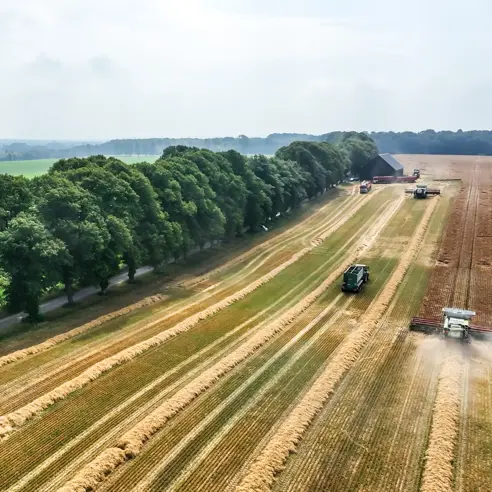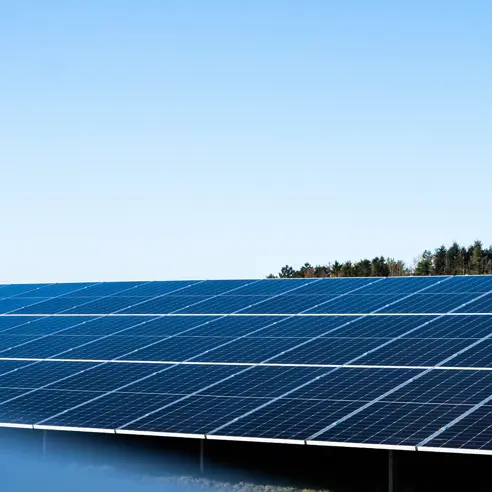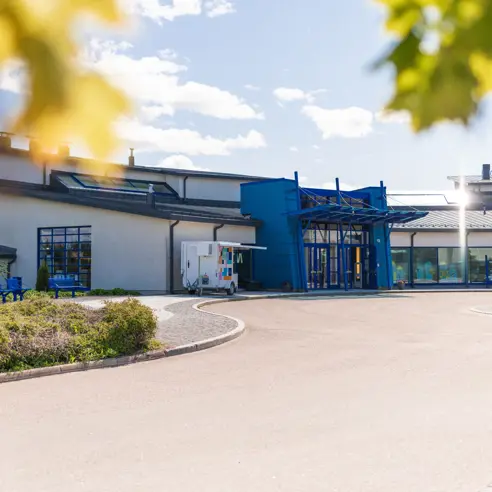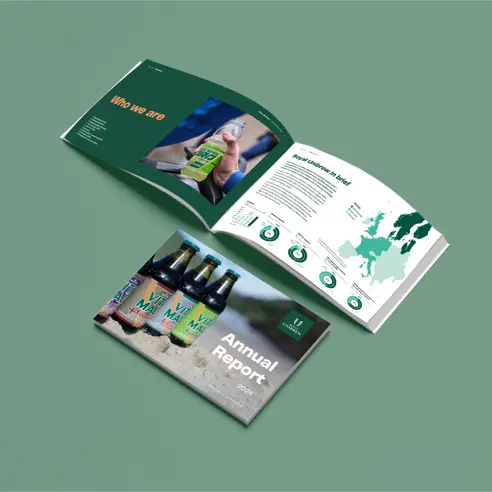Sustainability Strategy
We want to be THE PREFERRED CHOICE for the future, and it is our ambition to be among the most sustainable beverage companies globally.
We are turning ambitions into impact with science-based targets, solid progress, and a clear path to a low-carbon, circular, and inclusive economy.
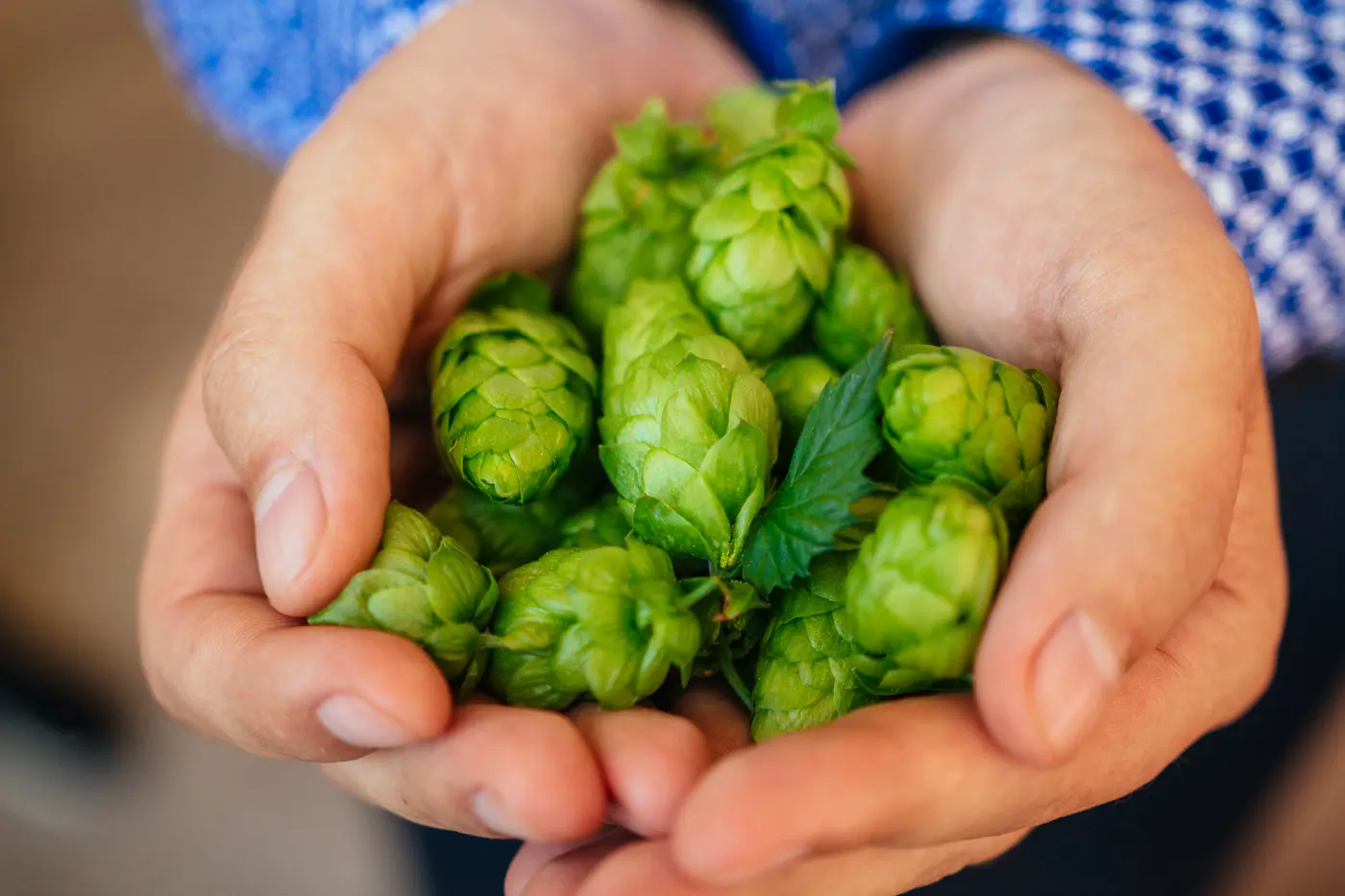
Impact Across Our Value Chain
Sustainability at Royal Unibrew Group means looking at the full picture. As part of our sustainability strategy, we focus on:
- Offering a variety of great tasting beverages, including no, low, regular sugar and alcohol options
- Decarbonizing our operations and logistics
- Promoting water stewardship and efficiency
- Supporting sustainable agriculture
- Protecting biodiversity and certified sourcing
- Providing a healthy, safe, and developmental working environment
We continue to align with the UN Global Compact, TCFD, SBTi, EU CSRD and more. Sustainability is part of our governance and risk framework, with oversight from senior leaders and the Board.

What Guides Us
Our overall sustainability goals are built on three pillars:
Our Consumers and Customers: We provide a broad and growing portfolio of responsible products, including low- and no-alcohol and low-/no-sugar options, tailored to evolving preferences.
Our Products: Our commitment to responsible innovation means continuously improving the health profile and environmental footprint of our products—with a strong focus on sourcing, packaging, and circularity.
Our People: We foster an inclusive, safe, and performance-driven workplace culture that supports development, accountability, and wellbeing.
Sustainability Goals and Progress
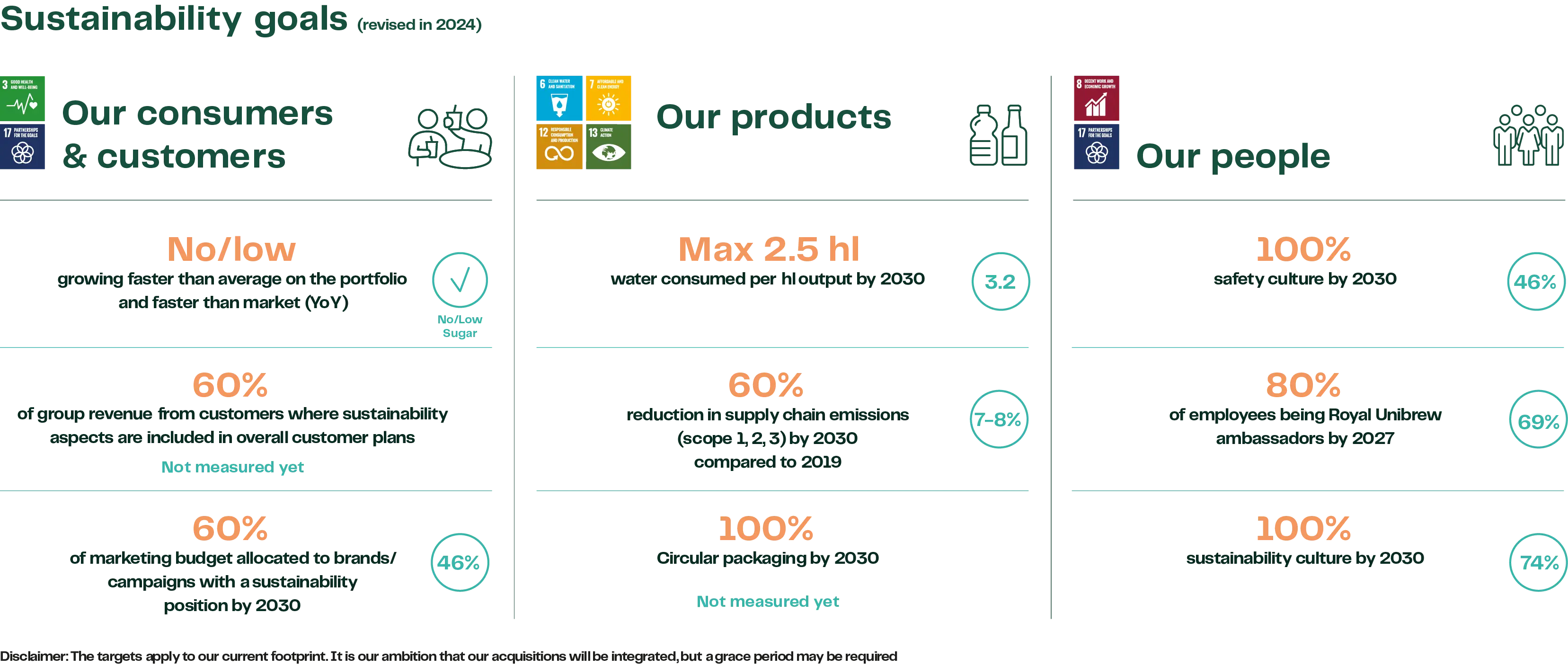
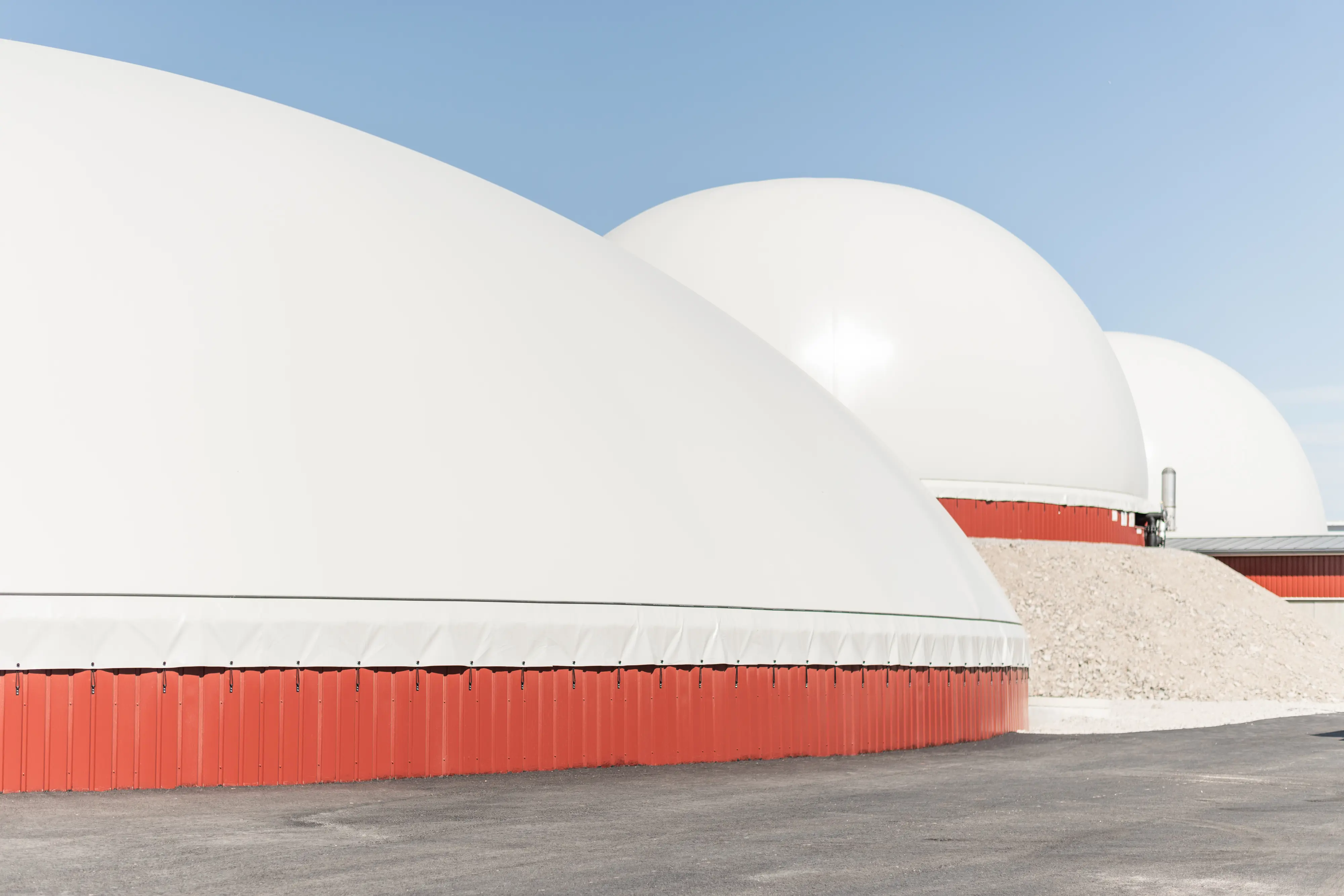
Our Climate Subgoals
We are committed to leadership in climate and environmental performance and recognize the critical role businesses play in combating climate change. Our goals, approved by Science Based Targets initiative (SBTi), are absolute, aligned with the 1.5oC pathway, and include:
- Net-zero by 2040, including full Scope 1, 2 and 3 emissions and FLAG (Forest, Land-use and Agriculture)
- 60% reduction in total emissions across our value chain (Scope 1, 2 and 3 by 2030, compared to 2019)
- Zero deforestation in our supply chain by 2025
To get there, we are investing in renewable energy, energy efficiency, sustainable sourcing, and low-impact logistics.
We are committed to a circular economy mindset, promoting sustainable practices in agriculture, distribution, and refrigeration. Currently, Scope 1 and 2 emissions account for approximately 10% of our total carbon footprint, while Scope 3 emissions represent about 90%. Together with our suppliers and business partners, we are dedicated to enhancing climate resilience and achieving our sustainability goals.

